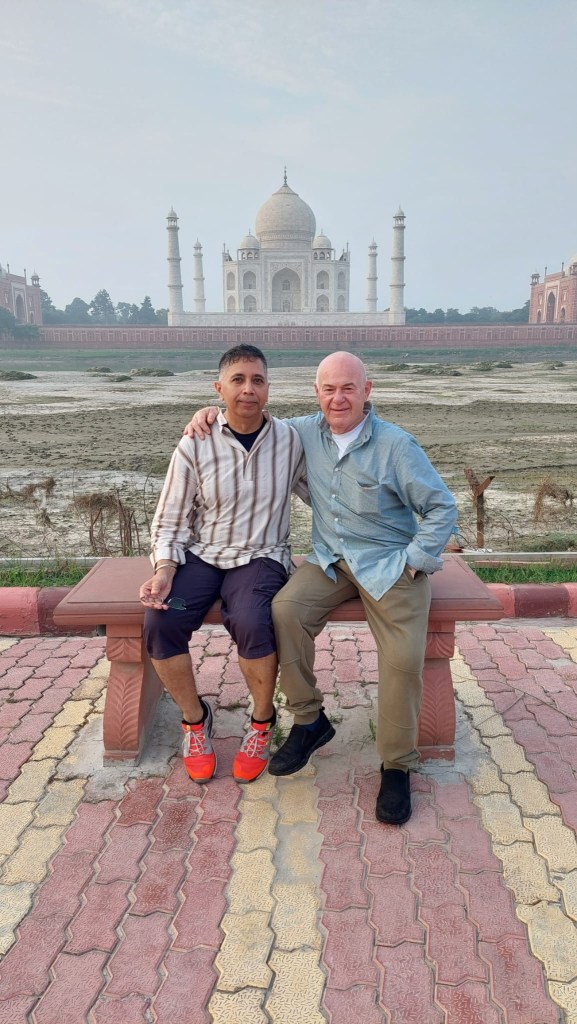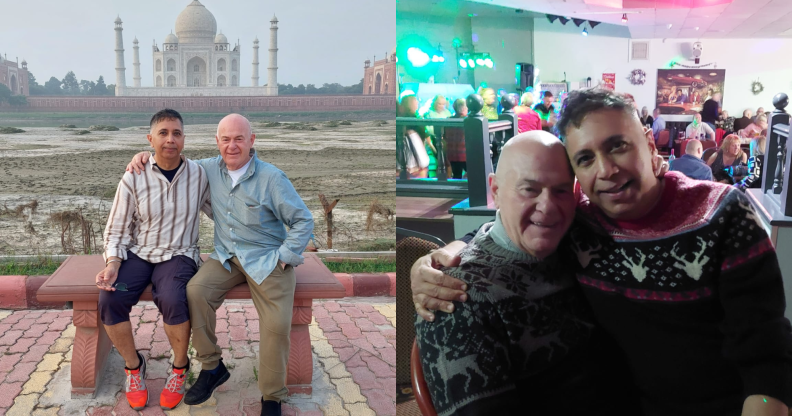The couple has looked after 33 children since retiring. (Swiis Foster Care)
A gay couple in the UK have fostered 33 children since their retirement, and are encouraging other people in the LGBTQ+ community to consider fostering.
Barney and Rajainder followed the “unretirement” trend, changing their career at age 66 to something which gave them purpose.
“I had previously undergone surgery for cancer, which required further surgery, so our decision was to undertake short-term fostering as opposed to adoption,” Barney told PinkNews, as per Swiis Foster Care.
They looked after a 6-year-old boy and his 9-year-old sister during their first placement four years ago, which lasted 12 months.
“As the main carer, I decided that emergency and respite care would be more suitable to our lifestyle. Obviously, emergency and respite care entails a high turnover of placements which can last anywhere from 24 hours to a few months,” he explained.

Though their day-to-day responsibilities depend on who they’re caring for, they often include speaking to other professionals, transporting the children and young people to school or college, appointments and activities, taking notes, and undergoing mandatory training.
“We have cared for children and young people from the age of six to 17 years old over the past four years so needs, routines, interventions and boundaries change constantly.
“Whatever the day brings, providing a constant calm, safe and caring environment is paramount.”
As for challenges, they prefer not to look at fostering negatively, “as this conjures up thoughts of competitiveness which we don’t associate with caring”.
He explained: “We find it more beneficial to accept situations and behaviours, which is not condoning such but rather, accepting that this is what is and probably to be expected given what has gone before, and enabling more appropriate interventions and responses.”
The most rewarding part of the role is the improvement they see in the young people they look after.
“Some children and young people come to us in a state of chaos, with low self-esteem and confidence, and they leave with increased confidence and self-esteem, having learned age-appropriate, independent living skills to help them move further in life.”
For those in the LGBTQ+ community, who fear that their identity or sexual orientation might prevent them from qualifying as a foster carer, Barney rejects these myths. “For anyone in the LGBTQ+ community considering fostering, I would say, ‘go for it!’ You have a lot to offer.”
He added: “We have always been fully open and honest with the children and young people we have cared for, along with all professionals and can say we have received nothing but respect and support.
“I can only assume that many from the LGBGT+ community who are concerned that their sexual orientation or identity would be a barrier to fostering associate their concern with negative attitudes that still exist in society.
“For us, the positive outcomes that can and have been achieved for the vulnerable children and young people we have cared for far outweigh any concern we have for narrow-minded, intolerant individuals.”
How did this story make you feel?
Sending reaction…
Thanks for your feedback!
